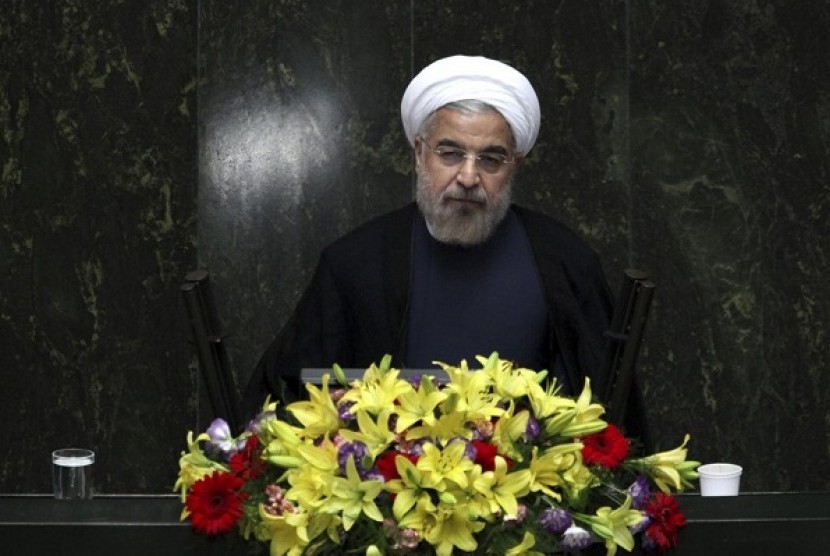REPUBLIKA.CO.ID, WASHINGTON - New signs are emerging that international sanctions are taking a deepening toll on Iran's economy — putting billions of dollars in oil money out of the government's reach. Yet there is no indication the distress is achieving the West's ultimate goal of forcing the Islamic Republic to halt its nuclear program.
Iran has proved adept at working around sanctions and if oil prices don't plummet, US analysts say the country probably has enough economic stamina to reach what the West suspects is its true intention — producing nuclear weapons.
"They can hang on for a long time," said Steve Hanke, a professor of applied economics at Johns Hopkins University who follows Iran's economy. "The sanctions as a deterrent for nuclear ambitions are more or less futile because all the experts will tell you they can (make a weapon) in a couple years."
Sanctions are at the core of international efforts to stop Iran's nuclear program. And if they fail, it will leave the West with some grim options. The US and its allies may have to choose between accepting a nuclear-armed Iran run by hard-line clerics or military action that could fuel more turmoil in the already tumultuous Middle East and still fail to cripple the nuclear facilities.
There is some hope that the recent election of President Hasan Rohani, considered a relative moderate in a hard-line regime, could lead to a more conciliatory Iran. But Supreme Leader Ayatollah Ali Khamenei controls the nuclear program and all other major policy decisions, and he has maintained a tough stance.
Rohani campaigned on a promise to seek relief from sanctions — something that many in the US saw as one of the first tangible effects of sanctions on nuclear policy. But he has also remained committed to the nuclear program, which Iran insists is exclusively for producing energy and medical research.
Iran's new foreign minister, Mohammad Javad Zarif, said in a television interview aired Thursday night that sanctions can't force Tehran to change its nuclear policy. Zarif, who is expected to lead nuclear talks with the five permanent members of the UN Security Council plus Germany, claimed Rouhani is a new, more measured approach to diplomacy with the West.
Sanctions had already been putting heavy pressure on Iran's economy for the past two years. Oil exports were slashed in half, the rial currency lost two-thirds of its value since late 2011 and inflation shot up. But since Rouhani's election in June, there have been a number of indications the distress is deepening.


